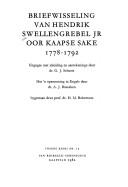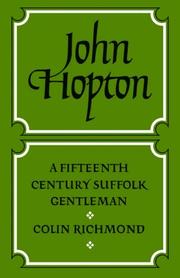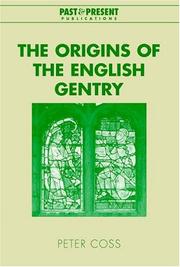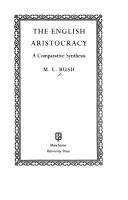| Listing 1 - 10 of 55 | << page >> |
Sort by
|
Book
ISBN: 9780231544504 0231544502 9780231183024 023118302X 9780231183024 9780231183031 0231183038 Year: 2017 Publisher: New York, NY : Columbia University Press,
Abstract | Keywords | Export | Availability | Bookmark
 Loading...
Loading...Choose an application
- Reference Manager
- EndNote
- RefWorks (Direct export to RefWorks)
An unsung gem of nineteenth-century Russian literature, City Folk and Country Folk is a seemingly gentle yet devastating satire of Russia's aristocratic and pseudo-intellectual elites in the 1860s. Translated into English for the first time, the novel weaves an engaging tale of manipulation, infatuation, and female assertiveness that takes place one year after the liberation of the empire's serfs.Upending Russian literary clichés of female passivity and rural gentry benightedness, Sofia Khvoshchinskaya centers her story on a common-sense, hardworking noblewoman and her self-assured daughter living on their small rural estate. The antithesis of the thoughtful, intellectual, and self-denying young heroines created by Khvoshchinskaya's male peers, especially Ivan Turgenev, seventeen-year-old Olenka ultimately helps her mother overcome a sense of duty to her "betters" and leads the two to triumph over the urbanites' financial, amorous, and matrimonial machinations.Sofia Khvoshchinskaya and her writer sisters closely mirror Britain's Brontës, yet Khvoshchinskaya's work contains more of Jane Austen's wit and social repartee, as well as an intellectual engagement reminiscent of Elizabeth Gaskell's condition-of-England novels. Written by a woman under a male pseudonym, this brilliant and entertaining exploration of gender dynamics on a post-emancipation Russian estate offers a fresh and necessary point of comparison with the better-known classics of nineteenth-century world literature.
Country life --- Gentry --- LITERARY CRITICISM / General. --- Gentry, Landed --- Landed gentry --- Squires --- Upper class --- Rural life --- Manners and customs --- History
Book
Year: 2021 Publisher: Warsaw ; Berlin : De Gruyter Open Poland,
Abstract | Keywords | Export | Availability | Bookmark
 Loading...
Loading...Choose an application
- Reference Manager
- EndNote
- RefWorks (Direct export to RefWorks)
This book contains an account of the 2,352 families (close to 3,000 counting cadet lines) that had one member sit in either House of the English, British, or United Kingdom Parliament, the Irish Parliament, or the Scottish Parliament between 1660 and 1945 and was represented in one of these Parliaments by at least three members at any time between the Middle Ages and 2015. Nearly 20,000 individuals are included in the main listings.Information is provided about social origins, ownership of country houses, wealth, honors, offices held, and links with associated families. The list provides a comprehensive reference source for the governing class of Great Britain and Ireland from Oliver Cromwell to Winston Churchill, and offers a deep pool of data to support analysis of social, political, economic, and cultural history in the British Isles over the course of more than four centuries.The British and Irish ruling class was a political, social, and economic elite. It constituted a hereditary landed aristocracy, constantly renewed and expanded by commercial and manufacturing wealth, that dominated government into the nineteenth century, remained potent in the twentieth century, and helped shape the modern world. Volume I available here
Book
ISBN: 3110548763 3110548372 3110548364 9783110548372 9783110548365 Year: 2017 Publisher: De Gruyter
Abstract | Keywords | Export | Availability | Bookmark
 Loading...
Loading...Choose an application
- Reference Manager
- EndNote
- RefWorks (Direct export to RefWorks)
This book contains an account of the 2,352 families (close to 3,000 counting cadet lines) that had one member sit in either House of the English, British, or United Kingdom Parliament, the Irish Parliament, or the Scottish Parliament between 1660 and 1945 and was represented in one of these Parliaments by at least three members at any time between the Middle Ages and 2015. Nearly 20,000 individuals are included in the main listings.Information is provided about social origins, ownership of country houses, wealth, honors, offices held, and links with associated families. The list provides a comprehensive reference source for the governing class of Great Britain and Ireland from Oliver Cromwell to Winston Churchill, and offers a deep pool of data to support analysis of social, political, economic, and cultural history in the British Isles over the course of more than four centuries.The British and Irish ruling class was a political, social, and economic elite. It constituted a hereditary landed aristocracy, constantly renewed and expanded by commercial and manufacturing wealth, that dominated government into the nineteenth century, remained potent in the twentieth century, and helped shape the modern world. Volume II available here

ISBN: 0620066148 Year: 1982 Publisher: van Riebeeck society
Abstract | Keywords | Export | Availability | Bookmark
 Loading...
Loading...Choose an application
- Reference Manager
- EndNote
- RefWorks (Direct export to RefWorks)
Gentry --- Gentry, Landed --- Landed gentry --- Squires --- Upper class --- Correspondence --- Swellengrebel, Hendrik, --- Correspondence. --- Cape of Good Hope (South Africa) --- History --- Afrikaans literature --- Swellengrebel, Hendrik [jr.]
Book
ISBN: 1317083113 1317083105 1280677597 9786613654526 1409443744 9781409443742 9781409443735 1409443736 9781315599748 9781317083092 9781317083108 9781138110021 1315599740 Year: 2012 Publisher: Farnham, Surrey, England Burlington, VT Ashgate
Abstract | Keywords | Export | Availability | Bookmark
 Loading...
Loading...Choose an application
- Reference Manager
- EndNote
- RefWorks (Direct export to RefWorks)
Drawing on rich interview material spanning fifteen years, Patrons of History sheds light not only on communism as it existed and the stratification that persisted under such regimes, but also on the functioning of relationships of power and the ways in which privilege can be studied in the contemporary world. As such, this book will appeal to anthropologists, sociologists, ethnographers and historians interested in cultural and social capital, inequality and resistance.
Gentry --- Nobility --- Noble class --- Noble families --- Nobles (Social class) --- Peerage --- Upper class --- Aristocracy (Social class) --- Titles of honor and nobility --- Gentry, Landed --- Landed gentry --- Squires --- History.

ISBN: 0521234344 0521020158 051156029X 0511866593 Year: 1981 Publisher: Cambridge : Cambridge University Press,
Abstract | Keywords | Export | Availability | Bookmark
 Loading...
Loading...Choose an application
- Reference Manager
- EndNote
- RefWorks (Direct export to RefWorks)
John Hopton's adult life spanned the years between 1430 and 1478, reputedly one of the most turbulent periods in English history. He, however, neither seems to have been troubled by the 'Wars of the Roses', nor to have displayed those attitudes normally attributed to the upper classes of the time: unflagging self-esteem, brutal ambition, grasping competitiveness. If his vices were not extravagant, his virtues too were unexceptional, those perhaps of a type of country gentleman we usually associate with a later age. Colin Richmond's book is an attempt to place a particular English gentleman in the framework of the world he knew. It opens with the story of this landless Yorkshireman's acquisition of rich properties in Suffolk, and a discussion of those estates themselves, how they were managed and their yield; it continues with a description of John, his remarkable second wife Thomasin, their family, and their life at Blythburgh.
Arts and Humanities --- History --- Gentry --- Hopton, John. --- Suffolk (England) --- History. --- Gentry, Landed --- Landed gentry --- Squires --- Upper class --- County of Suffolk (England) --- Suffolk
Book
Year: 2021 Publisher: Warsaw ; Berlin : De Gruyter Open Poland,
Abstract | Keywords | Export | Availability | Bookmark
 Loading...
Loading...Choose an application
- Reference Manager
- EndNote
- RefWorks (Direct export to RefWorks)
This book contains an account of the 2,352 families (close to 3,000 counting cadet lines) that had one member sit in either House of the English, British, or United Kingdom Parliament, the Irish Parliament, or the Scottish Parliament between 1660 and 1945 and was represented in one of these Parliaments by at least three members at any time between the Middle Ages and 2015. Nearly 20,000 individuals are included in the main listings.Information is provided about social origins, ownership of country houses, wealth, honors, offices held, and links with associated families. The list provides a comprehensive reference source for the governing class of Great Britain and Ireland from Oliver Cromwell to Winston Churchill, and offers a deep pool of data to support analysis of social, political, economic, and cultural history in the British Isles over the course of more than four centuries.The British and Irish ruling class was a political, social, and economic elite. It constituted a hereditary landed aristocracy, constantly renewed and expanded by commercial and manufacturing wealth, that dominated government into the nineteenth century, remained potent in the twentieth century, and helped shape the modern world. Volume I available here
Book
Year: 2021 Publisher: Warsaw ; Berlin : De Gruyter Open Poland,
Abstract | Keywords | Export | Availability | Bookmark
 Loading...
Loading...Choose an application
- Reference Manager
- EndNote
- RefWorks (Direct export to RefWorks)
This book contains an account of the 2,352 families (close to 3,000 counting cadet lines) that had one member sit in either House of the English, British, or United Kingdom Parliament, the Irish Parliament, or the Scottish Parliament between 1660 and 1945 and was represented in one of these Parliaments by at least three members at any time between the Middle Ages and 2015. Nearly 20,000 individuals are included in the main listings.Information is provided about social origins, ownership of country houses, wealth, honors, offices held, and links with associated families. The list provides a comprehensive reference source for the governing class of Great Britain and Ireland from Oliver Cromwell to Winston Churchill, and offers a deep pool of data to support analysis of social, political, economic, and cultural history in the British Isles over the course of more than four centuries.The British and Irish ruling class was a political, social, and economic elite. It constituted a hereditary landed aristocracy, constantly renewed and expanded by commercial and manufacturing wealth, that dominated government into the nineteenth century, remained potent in the twentieth century, and helped shape the modern world. Volume I available here
HISTORY / Europe / Great Britain / General. --- British Parliament, Irish Parliament, Scottish Parliament, Wales, elite, landed gentry, House of Commons, House of Lords, social mobility, aristocracy, class. --- British Parliament, Irish Parliament, Scottish Parliament, Wales, elite, landed gentry, House of Commons, House of Lords, social mobility, aristocracy, class.

ISBN: 052182673X 0521021006 051152238X Year: 2003 Volume: *54 Publisher: Cambridge : Cambridge University Press,
Abstract | Keywords | Export | Availability | Bookmark
 Loading...
Loading...Choose an application
- Reference Manager
- EndNote
- RefWorks (Direct export to RefWorks)
The gentry played a central role in medieval England, and this study is a sustained attempt to explore the origins of the gentry and to account for its contours and peculiarities between the mid-thirteenth and the mid-fourteenth century. The book deals with the deep roots of the gentry, but argues against views which see the gentry as formed or created earlier. It investigates the relationship between lesser landowners and the Angevin state, the transformation of knighthood, and the role of knights in the rebellion of mid thirteenth-century England. The role of lesser landowners in the society and politics of Edwardian England is then put under close scrutiny. It also emphasises changes in social terminology and the rise of social gradation, the emergence of the county as an important focus of identity, the gentry's control over the populace, and their openness to the upward mobility of professionals.
Gentry --- Knights and knighthood --- History --- England --- To 1500 --- Arts and Humanities --- Knighthood --- Civilization, Medieval --- Nobility --- Chivalry --- Heraldry --- Orders of knighthood and chivalry --- Gentry, Landed --- Landed gentry --- Squires --- Upper class

ISBN: 0719010810 0719018064 Year: 1984 Publisher: Manchester Manchester university press
Abstract | Keywords | Export | Availability | Bookmark
 Loading...
Loading...Choose an application
- Reference Manager
- EndNote
- RefWorks (Direct export to RefWorks)
Aristocracy (Social class) --- Aristocratie --- England --- Angleterre --- Nobility --- History --- Gentry --- Noblesse --- Histoire --- -Gentry --- -Nobility --- -Noble class --- Noble families --- Nobles (Social class) --- Peerage --- Upper class --- Titles of honor and nobility --- Gentry, Landed --- Landed gentry --- Squires --- Aristocracy --- Aristocrats --- #A9203H --- History. --- -History --- Noble class
| Listing 1 - 10 of 55 | << page >> |
Sort by
|

 Search
Search Feedback
Feedback About UniCat
About UniCat  Help
Help News
News